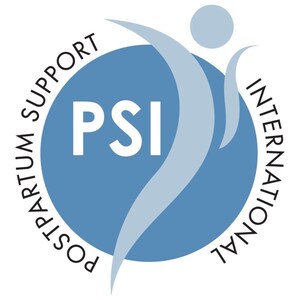With Recent Media Attention on Perinatal Mood Disorders, Postpartum Support International Hosts Largest Ever Annual Conference Building Connections Between Communities, Practitioners and Science
The University of North Carolina at Chapel Hill is at the forefront of innovative research and treatment programs centered on postpartum mental health issues
CHAPEL HILL, N.C., June 27, 2014 /PRNewswire/ -- As people across the nation struggle to understand how a woman in New York City could strap a 10-month-old son to her chest and leap to her death from an eight-floor window, 350 researchers, childbirth professionals, social support providers, mental and public health providers, nurses, primary care physicians, and volunteers gathered in Chapel Hill, N.C., to try to find answers. "This was the 27th annual conference of Postpartum Support International (PSI), with our largest attendance to date," announced PSI President Leslie Lowell Stoutenburg, RNC, MS. Postpartum Support International is the leading organization dedicated to helping women suffering from perinatal mood disorders, and helping to educate families, friends and healthcare providers so that moms and moms-to-be can get the support they need and recover.
The theme of this year's conference was "Creating Connections between Communities, Practitioners, and Science: Innovative Care for Perinatal Mood Disorders," said Chris Raines, RN MSN APRN-BC, 2014 Conference Program Chair. David Rubinow, MD, Chair of the Department of Psychiatry of the University of North Carolina at Chapel Hill, gave the opening keynote presentation, outlining new learnings about the role of hormonal changes and perinatal mood disorders. Deb Wachenheim, sister of Cindy Wachenheim, whose suicide was reported in the New York Times and was also featured in two recent NYT articles, spoke at the Friday conference luncheon and shared insights for family members of women experiencing a perinatal mood crisis.
A highlight of the conference was a tour of the country's first perinatal inpatient psychiatric unit, where women from across the nation can be treated for severe perinatal mood disorders including postpartum psychosis. "We can treat from three to five women at a time. Babies can visit their moms on the unit, which helps to preserve important mother-baby bonding. A family member, such as the father or grandmother, is always present during the visit to ensure the safety of the infant," said Samantha Meltzer-Brody, MD, MPH.
The Friday night banquet featured Katherine Stone, creator of Postpartum Progress, as Emcee. Susan Benjamin Feingold, PsyD, author of "Happy Endings, New Beginnings: Navigating Postpartum Disorders," shared thoughts on turning mental health challenges into opportunities for personal growth and service. A highlight of the evening was a sneak preview of the trailer of the feature-length documentary "Dark Side of the Full Moon," which shares intimate stories of perinatal and postpartum mood and anxiety disorders.
Ann Smith, CNM, incoming PSI President, PSI Support Coordinator in New York City and postpartum depression survivor, announced that next year's conference will be held in Plymouth, Mich., June 24-27.
PSI has volunteer coordinators in all 50 states and over 35 countries. Visit www.postpartum.net to locate resources in your area. PSI Warmline is available every day, in English and Spanish, 1-800-944-4773 (4PPD).
CONTACTS:
Sharon Gerdes
Email, 719-358-9499
SOURCE Postpartum Support International
WANT YOUR COMPANY'S NEWS FEATURED ON PRNEWSWIRE.COM?
Newsrooms &
Influencers
Digital Media
Outlets
Journalists
Opted In





Share this article